Health & Fitness › Beauty › Your Skin and the Sun
I recently read some interesting statistics about sun exposure. Apparently, people who spend lots of time in the sun may have an increased risk of skin cancer, but they also have a decreased risk of many other cancers. Why?
To answer that, let’s take a look at the effect of ultraviolet radiation on the body. When your skin is exposed to the sun, it is actually bombarded by a number of different types of radiation. The main ones that directly affect the skin are ultraviolet rays, both UVA (more deeply penetrating) and UVB (more superficial, but instrumental in causing sunburn).
When ultraviolet radiation penetrates the skin, it signals the melanocytes to manufacture a pigment known as melanin. This pigment is brown and causes the appearance of a tan. Melanin pigment absorbs ultraviolet radiation and keeps it from damaging cells. It is our natural protection against harm from sunlight.
However, it takes time for the melanocytes to make enough melanin to protect us from prolonged sun exposure. Races that evolved near the equator have a genetic predisposition towards higher melanin levels in the skin, so they do not burn the way the northern races do when exposed to the sun.
Ultraviolet radiation is needed to some degree for the production of vitamin D in the skin. People who are never exposed to the sun run the risk of vitamin D deficiency, which could account for their greater risk of other cancers. People who always use a sunscreen may also produce less vitamin D. Lack of vitamin D can be a factor in prostate, breast and other cancers.
For a number of years now, people have been encouraged to use sunscreens to block harmful UVB rays and minimize the risk of sunburn. Until recently, UVA rays were not blocked by these sunscreens, even though we now know that the potential for DNA damage is greater from the deeper penetrating UVA rays than from UVB. Today, sunscreens that claim to protect against UVA are often less than 35% effective when used appropriately. In addition, most people tend to apply less than the optimal amount for protection.
The use of sunscreens may have given many people a false sense of security. They believe that because they have lathered themselves with sunscreen and aren’t showing visible sunburn, that no damage has occurred. Unfortunately, that may not be true. The UVA radiation may be causing hidden damage and the sunscreen may also be preventing the skin from producing adequate levels of vitamin D. Ironically, the sunscreen may be increasing their risk of cancer.
Our species did not evolve using sunscreen. Human beings living in tropical regions have spent their lives in the sun, wearing little clothing. I have never heard of primitive tribes being ravaged by epidemics of skin cancer. In many cases they lived healthier lives than we do.
Is this yet another case of humans tampering with nature and having to pay the price eventually? I believe we might be well advised to consider our use of sunscreen carefully. A far better policy might be to build up our melanin levels naturally with limited but gradually increasing exposure over a period of time. This allows the body to tan without burning and also allows us to create our own, natural vitamin D. Never use sunscreen as a way of staying out in the sun longer than you would without it…those UVA rays are going to penetrate well beyond the sunscreen, whether you notice it or not. A better alternative would be a natural skin lotion full of moisturizers and antioxidants. That way you are actually feeding your skin and protecting from the drying effects of sun and wind. You can use a product that contains some UV absorbing ingredients…just don’t count on them to protect you from overexposure to all the different frequencies of radiation.
If you must stay out in the sun longer than your tan can cope with safely, cover up! A wide brimmed hat and loose fitting, tightly woven clothing is better protection against a wide range of solar radiation than any chemical formula on the market. In addition, make sure you take your antioxidants, vitamins and nutrients internally. The body is much better equipped to cope with occasional radiation damage when you give it the right tools for repairs.
Article Source:http://gatewaytobeauty.com

To answer that, let’s take a look at the effect of ultraviolet radiation on the body. When your skin is exposed to the sun, it is actually bombarded by a number of different types of radiation. The main ones that directly affect the skin are ultraviolet rays, both UVA (more deeply penetrating) and UVB (more superficial, but instrumental in causing sunburn).
When ultraviolet radiation penetrates the skin, it signals the melanocytes to manufacture a pigment known as melanin. This pigment is brown and causes the appearance of a tan. Melanin pigment absorbs ultraviolet radiation and keeps it from damaging cells. It is our natural protection against harm from sunlight.
However, it takes time for the melanocytes to make enough melanin to protect us from prolonged sun exposure. Races that evolved near the equator have a genetic predisposition towards higher melanin levels in the skin, so they do not burn the way the northern races do when exposed to the sun.
Ultraviolet radiation is needed to some degree for the production of vitamin D in the skin. People who are never exposed to the sun run the risk of vitamin D deficiency, which could account for their greater risk of other cancers. People who always use a sunscreen may also produce less vitamin D. Lack of vitamin D can be a factor in prostate, breast and other cancers.
For a number of years now, people have been encouraged to use sunscreens to block harmful UVB rays and minimize the risk of sunburn. Until recently, UVA rays were not blocked by these sunscreens, even though we now know that the potential for DNA damage is greater from the deeper penetrating UVA rays than from UVB. Today, sunscreens that claim to protect against UVA are often less than 35% effective when used appropriately. In addition, most people tend to apply less than the optimal amount for protection.
The use of sunscreens may have given many people a false sense of security. They believe that because they have lathered themselves with sunscreen and aren’t showing visible sunburn, that no damage has occurred. Unfortunately, that may not be true. The UVA radiation may be causing hidden damage and the sunscreen may also be preventing the skin from producing adequate levels of vitamin D. Ironically, the sunscreen may be increasing their risk of cancer.
Our species did not evolve using sunscreen. Human beings living in tropical regions have spent their lives in the sun, wearing little clothing. I have never heard of primitive tribes being ravaged by epidemics of skin cancer. In many cases they lived healthier lives than we do.
Is this yet another case of humans tampering with nature and having to pay the price eventually? I believe we might be well advised to consider our use of sunscreen carefully. A far better policy might be to build up our melanin levels naturally with limited but gradually increasing exposure over a period of time. This allows the body to tan without burning and also allows us to create our own, natural vitamin D. Never use sunscreen as a way of staying out in the sun longer than you would without it…those UVA rays are going to penetrate well beyond the sunscreen, whether you notice it or not. A better alternative would be a natural skin lotion full of moisturizers and antioxidants. That way you are actually feeding your skin and protecting from the drying effects of sun and wind. You can use a product that contains some UV absorbing ingredients…just don’t count on them to protect you from overexposure to all the different frequencies of radiation.
If you must stay out in the sun longer than your tan can cope with safely, cover up! A wide brimmed hat and loose fitting, tightly woven clothing is better protection against a wide range of solar radiation than any chemical formula on the market. In addition, make sure you take your antioxidants, vitamins and nutrients internally. The body is much better equipped to cope with occasional radiation damage when you give it the right tools for repairs.
Article Source:http://gatewaytobeauty.com
Article By: Tys Dammeyer - Herbal & Nutritional Consultant - Iridologist
Helpful Tips For Hair Loss Prevention
Causes, Symptoms And Treatment For Black Toenail Fungus
Why Women needs Best Multivitamins
MUSCLE AND WEIGHT GAIN SUPPLEMENTS FOR HEALTHY LIFE
Tips for Looking Your Best Every Day
Skin Care Tips for glowing skin: Removing all the skin problems
Triple your Strength with Salmon Fish Oil
Most Read
New Articles
Most Viewed
Most Downloads
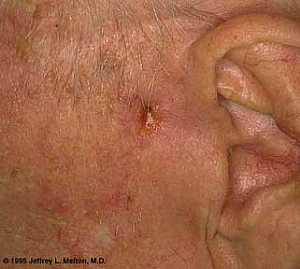 Basal Cell Carcinoma ("Rodent Ulcer" Type)
Basal Cell Carcinoma ("Rodent Ulcer" Type)
 Basal Cell Carcinoma (Histology-Morpheaform Type)
Basal Cell Carcinoma (Histology-Morpheaform Type)
 Basal Cell Carcinoma (Histology-Nodular Type - High power)
Basal Cell Carcinoma (Histology-Nodular Type - High power)
 Basal Cell Carcinoma (Histology-Nodular Type- High power)
Basal Cell Carcinoma (Histology-Nodular Type- High power)
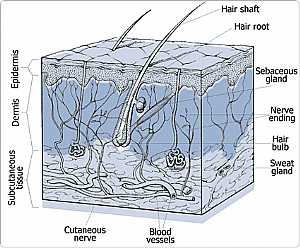 Skin
Skin
 Nervous System -- Basic
Nervous System -- Basic
 Brain anatomy
Brain anatomy
 Brain anatomy
Brain anatomy
 Brain anatomy
Brain anatomy
 Brain anatomy
Brain anatomy
 Head anatomy
Head anatomy
 Brain anatomy
Brain anatomy
eDoctorOnline.com does not provide medical advice, diagnosis or treatment.
© Copyright 2001-2022 eDoctorOnline.com
© Copyright 2001-2022 eDoctorOnline.com

 Nose anatomy
Nose anatomy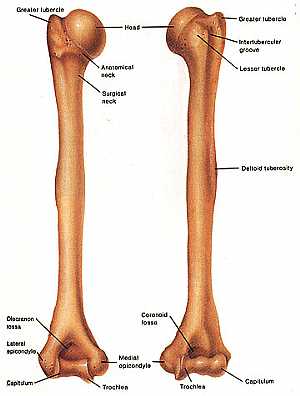 Humerus bone
Humerus bone Eye anatomy
Eye anatomy Coronary arteries anatomy
Coronary arteries anatomy Female pelvic anatomy
Female pelvic anatomy Heart and lung anatomy
Heart and lung anatomy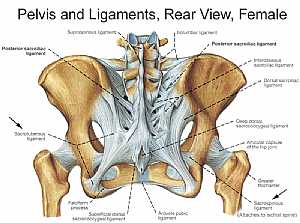 Bones and ligaments of the FEMALE Pelvis
Bones and ligaments of the FEMALE Pelvis Neck Anatomy
Neck Anatomy MidBrain anatomy
MidBrain anatomy Oral Cavity
Oral Cavity Stomach anatomy
Stomach anatomy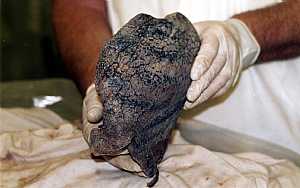 Lung anatomy
Lung anatomy Basal Cell Carcinoma ("Rodent Ulcer" Type)
Basal Cell Carcinoma ("Rodent Ulcer" Type) Basal Cell Carcinoma (Histology-Morpheaform Type)
Basal Cell Carcinoma (Histology-Morpheaform Type) Basal Cell Carcinoma (Histology-Nodular Type - High power)
Basal Cell Carcinoma (Histology-Nodular Type - High power) Basal Cell Carcinoma (Histology-Nodular Type- High power)
Basal Cell Carcinoma (Histology-Nodular Type- High power) Skin
Skin Nervous System -- Basic
Nervous System -- Basic Brain anatomy
Brain anatomy Brain anatomy
Brain anatomy Brain anatomy
Brain anatomy Brain anatomy
Brain anatomy Head anatomy
Head anatomy Brain anatomy
Brain anatomy
Be the first one to comment on this article!